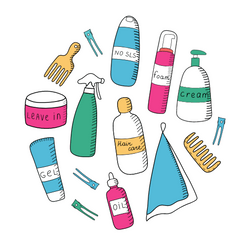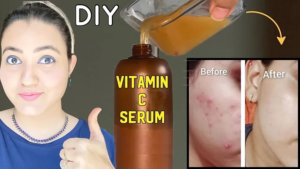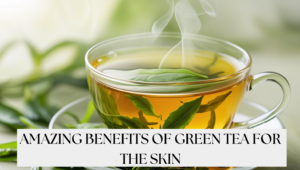We all dream of having effortlessly beautiful, healthy hair that shines with vitality. But for most of us, it feels like this dream is slipping away. Hair fall seems relentless, and our once silky smooth hair now feels rough and lifeless.
I know you have tried chemical remedies, but they’ve failed to deliver the results you craved, and natural remedies, while effective, require time and commitment that you simply don’t have.
It’s easy to feel frustrated and think that more products or treatments are the solution to our hair problems. However, when it comes to hair care, less is often more.
Sometimes, simplifying our routine and focusing on the essentials can lead to the best results.
Let me introduce myself!
Hello, I’m Prerna your go-to trusted source for natural skincare and haircare remedies. Preity Prerna’s YouTube channel is loved and supported by a family of 5.4 million. Well, you don’t have to trust my words, visit the comment section of this blog or YouTube and see yourself (after you’ve finished reading this article, of course)!
Contents:
1]. FOOD FOR GOOD HAIR HEALTH

The Science Behind Hair Health
Before we dive into the foods that can boost hair health, let’s briefly examine why nutrition plays a vital role in how our hair looks and feels.
Hair is primarily composed of a protein called keratin. It grows from hair follicles embedded in the scalp. The health of your hair largely depends on the nutrients and vitamins you consume.
1]. Protein: Protein is the building block of hair. A protein-rich diet ensures that your hair follicles receive the necessary amino acids for optimal growth and strength.
2]. Vitamins & Minerals: Vitamins and minerals, such as vitamins A, C, D, and E, and minerals like iron and zinc, are crucial for hair health. They promote hair growth, prevent hair loss, and maintain a healthy scalp.
3]. Omega-3 Fatty Acids: Omega-3 fatty acids are essential for a healthy scalp and hair. They keep the scalp hydrated and support hair’s natural shine.
The Best Foods For Healthy Hair
Now that we understand the science, let’s delve into the foods that can help you achieve and maintain gorgeous, healthy hair.
Salmon
Spinach
Sweet Potatoes
Greek Yogurt
Blueberries
Oysters
Avocado
Nuts and seeds
Lean poultry
Beans
Carrots
Read the detailed guide over here → Food For Good Hair Health: The Complete Guide
2]. HAIR CARE PRODUCT

I always get asked what products I use for my hair. I’ll explain in detail everything I use.
2]. Conditioners: I don’t apply conditioners. What I do is apply pre-conditioners. Homemade natural conditioners give you the best results without causing any damage.
You can try this one → Prepare Hair Mask At Home With Preity Prerna.
3]. Hair brushes: For hairbrushes, I trust the well-known brand VEGA. It has a lot of variants. I have already told you many times that there should be breathing space in the hairbrush.
4]. Combs: I have a lot of combs.
Broad-tooth comb
Tonian cow comb
Normal comb
5]. Hair towel: I have told you all that if you have a microfiber towel, then it is very good for hair because hair dries quickly. If you are using a normal cotton towel, then be gentle.
6]. Hair Serum: I have shared many DIY leave-in hair serums with you. After taking a bath, I apply serum to my damp hair.
You can try this one → How To Prepare Hair Serum At Home?
10]. Pillows: I use silk pillow covers when I do head wash because after head wash if you lie on cotton pillow covers then oil comes in your hair.
Read the detailed guide over here → The Complete Hair Care Products Guide: Preity Prerna
3]. HAIR CARE ROUTINE

My hair routine:
As the seasons change, so does my hair care routine. Today, I’m excited to share my winter hair-care regimen with you.
Day 1: Hair Oil Spa
During winter you can apply heavy oils and get great results. I’ve shared multiple hair oil spa remedies, you can watch them mix multiple oils or use DIY hair oil if you’ve prepared.
Apply thoroughly on your scalp and hair and tie them well. Then, leave overnight for some deep nourishment and relaxation.
Day 2: Head wash + Serum
Use your regular shampoo. To wash your hair, dilute your shampoo. Since you’ve applied a lot of hair it will take a little time to be washed. Take your time rinsing it out thoroughly.
If your hair has so much frizz, which is normal in winter, you can use already prepared DIY hair serum argon oil or just aloe vera gel. Use whatever you’re comfortable with. Apply serum to damp hair, then comb it and it’s good to go for the next 3 days.
Day 3: Tied Hair
You don’t need to do anything on Day 3. Just enjoy your hair. You can tie for hair on Day 3. Tieing hair is a remedy in itself. It keeps your hair in a disciplined way and prevents breakage.
Day 4: Tied Hair + Oiling
At night before sleeping, do oiling. Opt for a lighter oil this time and massage it into your scalp and strands. Let it work its magic while you catch some good sleep.
Day 5: Pre Wash Hair Rinse
We’re going to prepare a hair rinse. Don’t go after the name, we’ll use it before shampoo. Take a big spoonful of aloe vera gel and one spoonful of white vinegar and rice water (overnight soaked).
Then, apply it to the hair and let it be for 45 minutes. And then shampoo. Trust me, your hair will thank you for this rejuvenating treatment that helps control excess oil.
Day 6: Hair Oil/Serum/Toner
Keep it simple with a light oiling or serum application. Massage it into your hair and scalp, then tie your hair up for a fuss-free day.
Day 7: Tied Hair
We’ve made it to Day 7, and it’s all about embracing the tied-up look once again. Whether it’s a sleek ponytail or a chic bun, keeping your hair tied up helps maintain its health and prevents unnecessary breakage.
Try my season-specific hair routines.
4]. WHY YOU NEED HAIR REGIMES?

If we want success in any area of life, we need discipline. From professional goals to personal ones, discipline is a must. Without discipline, nothing can be achieved and with discipline, nothing can not be achieved.
In the hustle and bustle of life, we often don’t get time to follow big routines for hair. In a way, we take it very lightly. As a result, sleepless nights are caused by hair fall, frizz, dandruff and many more.
However, if there’s one thing I’ve learned as a devoted hair enthusiast, it’s that neglecting your hair is akin to neglecting a crucial aspect of self-care.
A well-structured hair care routine holds the key to unlocking the full potential of your hair and gives you benefits that extend far beyond mere aesthetics.
From enhancing texture and quality to imparting a healthy shine and bolstering density, the rewards of a dedicated hair care regimen are boundless.
Why Do You Need A Hair-Care Routine?
Your hair is more than a mere collection of dead cells. It’s a reflection or an indicator of your overall health and well-being. Just like your skin, nails, and other parts of your body, your hair requires proper care and attention to maintain its health and vitality.
This is where the concept of a hair regimen comes into play. A hair regimen is a structured routine of care and maintenance aimed at nourishing, protecting, and enhancing the overall health of your hair.
How to Build An Ideal Hair-Care Routine?
Now that we’ve discussed the importance of having a hair regimen, let’s explore how to create one that works for you:
Understand your hair type and needs
Choose the right products
Establish a routine
Incorporate protective measures
Listen to your hair
Read the detailed guide over here → You need hair regime – Here’s Why
5]. WHY YOUR HAIR REMEDIES ARE NOT WORKING?

Many people say that DIY remedies for hair do not work for them the way they work for other people. Questions that often come up are,
Am I doing something wrong?
Did I skip a step?
Is it possible that the ingredients I am getting are not of good quality?
I will help you to understand the places where you might go wrong while doing a DIY remedy. You will be surprised to see how minute these mistakes are.
Tip 1: Switch to a hairbrush.
Tip 2: Change pillow covers more often.
Tip 3: Oiling before washing.
Tip 4: Say NO to plastic hair ties.
Tip 5: Do not make extremely tight ponytails.
Tip 6: Get hot oil massages.
Tip 7: Increase the consumption of gooseberry (amla) and pomegranate (anar).
Read the detailed guide over here → Reasons Why Hair Remedies Are Not Working For You
6]. HAIR QUALITY

Many people are unaware that hair has a particular type and texture. Whenever we look for a remedy, a DIY product, or any hair product for that matter, we should consider the quality and category of our hair.
Knowing what sort of hair you have will help you understand the kind of remedy you need for your hair.
Let me clarify one thing, natural remedies are for every hair type. What differs here is the quantity and the period of the remedy.
But how can we know about the quality of our hair?
Do not worry, as I have the answer! The key to understanding the quality of hair is understanding the porosity.
Porosity Of Hair
The porosity of hair is a measure of how well it can take in and retain moisture. Another way to think of it is as an indicator of how quickly moisture may enter the hair.
Although extrinsic factors can also affect hair porosity, genetics play a significant role in determining it.
What Are The Types Of Porosity?
There are three types of porosities:
1]. Low Porosity: Closely spaced cuticles are a sign of low porosity.
2]. Medium Porosity: Less firmly bonded cuticles are a sign of medium porosity.
3]. High Porosity: More widely spaced cuticles are a sign of high porosity.
How To Know Your Hair Porosity?
If you want to identify your hair porosity at a glance, you can check the smoothness of your hair.
Hair with low porosity is smooth because of the tightly packed cuticles. High porosity hair is rough in texture.
There is a simple test you can do to know your hair porosity. Do this test on the day you shampoo your hair. Make sure your hair is clean and dry.
Take a glass of water and drop a hair strand in it. That is it! Isn’t it simple?
The results should be as follows:
If the strand floats at the top, you have low porosity.
If the strand floats somewhere in the middle, you have medium porosity.
If the strand sinks, you have high porosity.
Factors Affecting Hair Porosity
All the factors here affect the porosity for the worse:
Exposure
Sun
Chemical treatment
Regulated protein
What Can Be Done?
Read this detailed guide to understand what all you can do → How To Know Your Hair Quality | Preity Prerna
Porosity Of Hair
The porosity of hair is a measure of how well it can take in and retain moisture. Another way to think of it is as an indicator of how quickly moisture may enter the hair.
Although extrinsic factors can also affect hair porosity, genetics play a significant role in determining it.
What Are The Types Of Porosity?
There are three types of porosities:
1]. Low Porosity: Closely spaced cuticles are a sign of low porosity.
2]. Medium Porosity: Less firmly bonded cuticles are a sign of medium porosity.
3]. High Porosity: More widely spaced cuticles are a sign of high porosity.
How To Know Your Hair Porosity?
If you want to identify your hair porosity at a glance, you can check the smoothness of your hair.
Hair with low porosity is smooth because of the tightly packed cuticles. High porosity hair is rough in texture.
There is a simple test you can do to know your hair porosity. Do this test on the day you shampoo your hair. Make sure your hair is clean and dry.
Take a glass of water and drop a hair strand in it. That is it! Isn’t it simple?
The results should be as follows:
If the strand floats at the top, you have low porosity.
If the strand floats somewhere in the middle, you have medium porosity.
If the strand sinks, you have high porosity.
Factors Affecting Hair Porosity
All the factors here affect the porosity for the worse:
Exposure
Sun
Chemical treatment
Regulated protein
What Can Be Done?
Read this detailed guide to understand what all you can do → How To Know Your Hair Quality | Preity Prerna
7]. HAIR FOLLICLES

Hair is a defining feature of our appearance and plays a significant role in expressing our identity. Whether long and flowy or short and sleek, our hair often reflects our personality and culture.
But have you ever wondered how hair grows and why it varies so much from person to person?
The answer lies in the complex structure of hair follicles.
Anatomy Of Hair Follicles
Anatomy Of Hair Follicles
Hair follicles are tiny, tube-like structures in the skin’s dermis (the middle layer) and extend into the subcutaneous fat (the deepest layer). They are responsible for hair growth and are made up of several essential components:

Image Source: Imami Hair Restoration
The Hair Growth Cycle
Understanding the hair growth cycle is crucial for comprehending why hair varies in thickness, length, and density among individuals. This cycle consists of three main phases:
Anagen Phase (Growth Phase)
Catagen Phase (Transition Phase)
Telogen Phase (Resting Phase)
The ratio of time spent in each phase, along with genetic factors, determines the characteristics of an individual’s hair, such as thickness, colour, and texture.
Factors Affecting Hair Growth
Several factors can influence the health and appearance of your hair, from genetics to lifestyle choices:
Genetics
Hormones
Diet and nutrition
Scalp health
Stress
Hair care practices
Environmental factors
Hair Care Tips For Healthy Hair Follicles
Maintaining healthy hair follicles is crucial for promoting strong and vibrant hair. Here are some tips to help you achieve and maintain healthy hair:
Balanced diet
Proper hair care
Scalp health
Stress management
Regular trims
Avoid tight hairstyles
Protect from environmental factors
Read the detailed guide over here → Understanding Hair Follicles: The Key to Healthy Hair
8]. SCALP HEALTH

While people focus on their skincare and make sure they use just the right products, they often sideline hair care. To be more precise, we often sideline our scalp health.
It is necessary to take care of your scalp as much as you take care of your skin and body. While picking out a shampoo or any haircare product, we focus solely on hair, not the scalp.
Yes, scalp and hair (strands) are two different things.
In addition to nourishing the skin that shields your head from injury and illness, taking care of your scalp can help you create a healthy environment for your hair to flourish.
What Are Signs Of Unhealthy Scalp?
It is crucial to understand the signs of an unhealthy scalp. If you want healthy, lustrous, and perfect hair, you should take care of your scalp.
The process of growing your hair starts underneath the skin, so by the time it emerges from the hair follicle, it has already taken shape.
It is why your scalp and its structures are necessary for all follicular activity, including the production of new hair and the growth of existing hair.
The indications of an unhealthy scalp are:
Dry and itchy scalp
Dandruff
Accumulation of excessive oil and products
Hair loss
What Is A Healthy Scalp?
Given that your scalp is covered in abundant hair, it can occasionally be challenging to tell whether it is at its healthiest and happiest, but it’s still important to check.
Oil production that is balanced, clean, moisturized skin, adequate blood flow, and the lack of irritation, itching, and flaking are all signs of a healthy scalp.
How To Take Care Of Your Scalp?
Keep your scalp nourished.
Keep your scalp clean.
Keep your scalp hydrated.
Exfoliate the scalp.
Do not stress.
Take care of your diet.
Limit sun exposure.
Having a regimen that is specially created for your scalp type and conditions is vital when it comes to scalp care.
Regular scalp care will not only provide your hair follicles with a strong base but will also hydrate and safeguard the skin on your scalp.
Read the detailed guide over here → Scalp Health: Everything You Need To Know | Preity Prerna
Final Words
That’s all from my side on hair care. I hope I was able to explain every point to you.
Now, I would like to hear from you.
What tip from this detailed guide do you want to try first?
Is it adding food that makes your hair healthy?
Or, you’re going to improve your scalp?
Either way, let me know in the comment section. And,












